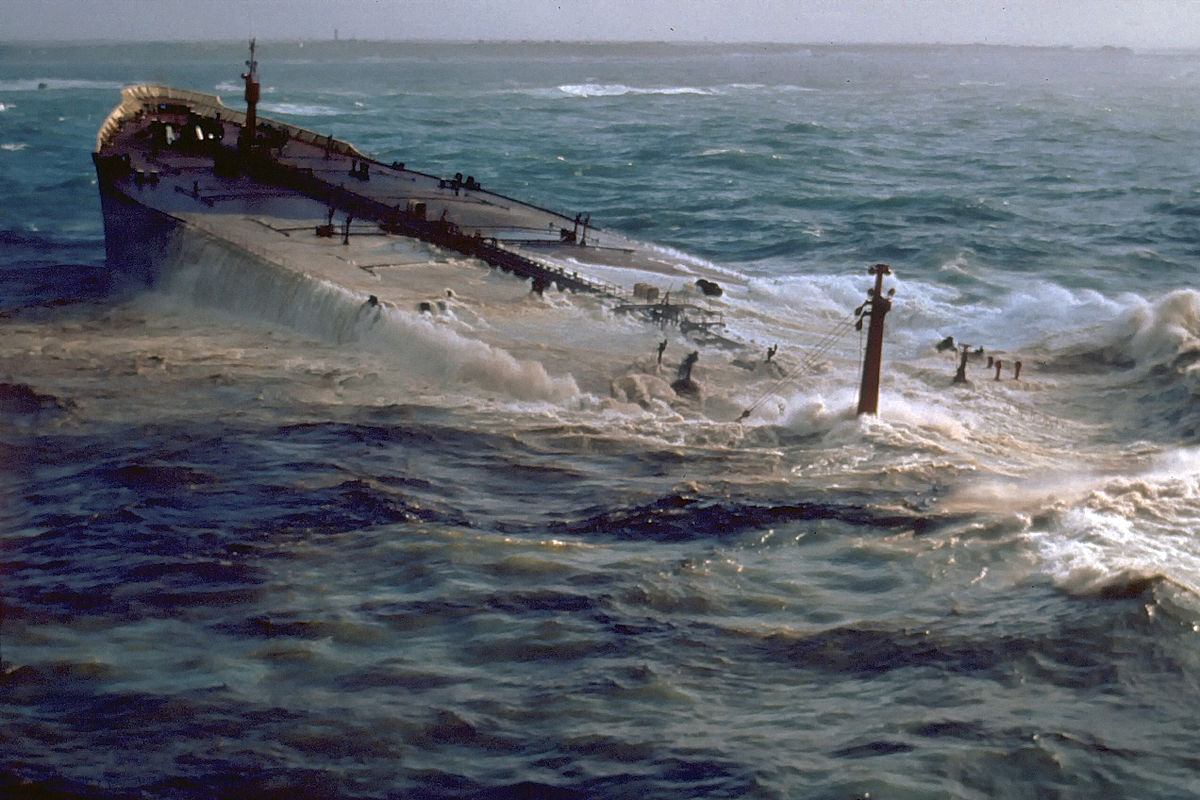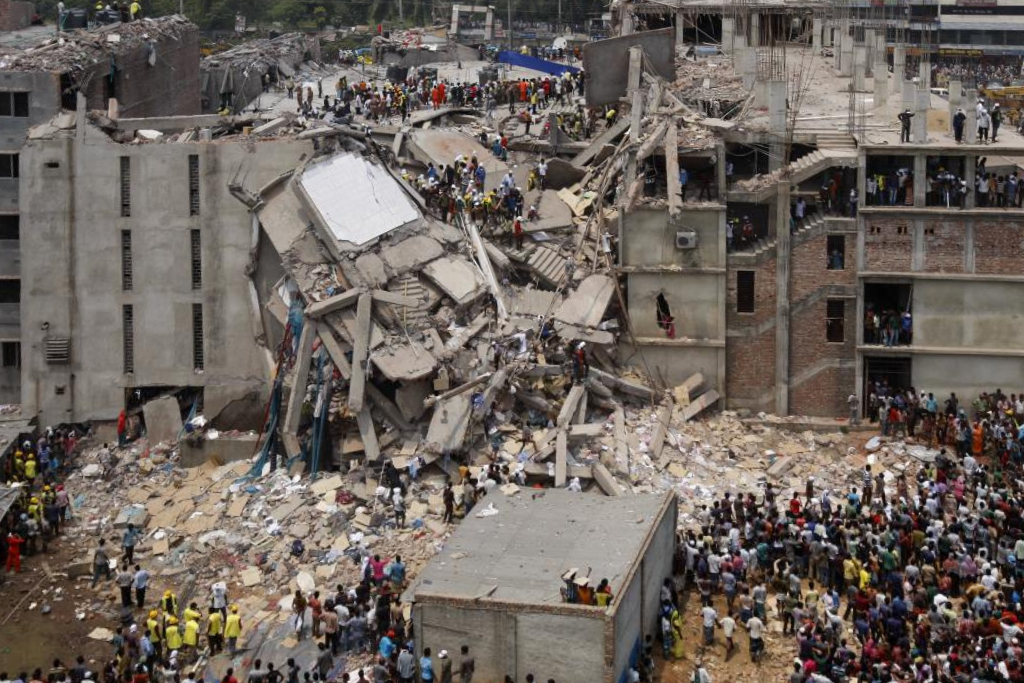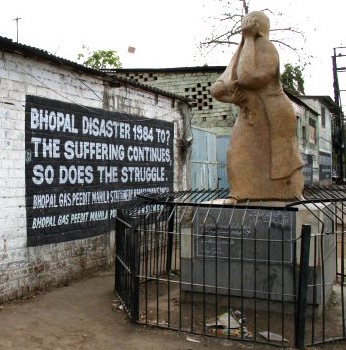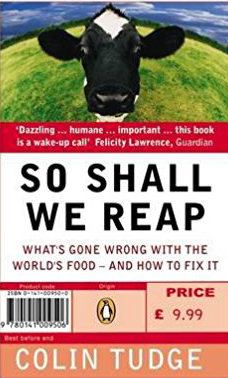Other Voices: The Connexions Newsletter
June 26, 2017
This Issue: Public Safety
It is becoming increasingly clear that we have been witnessing a drastic rolling back of the systems and structures which Western societies developed over the past century or more to safeguard public health and safety. Politicians and business leaders, permeated with free-market ideology, have been jettisoning, with little thought or understanding of the consequences, the apparatus previous generations built, piece by piece, to mitigate the most dangerous aspects of industrial civilization.
Systems which were established to protect public health have been deliberately dismantled by governments driven by a fanatical hatred of the public sector, in the name of eliminating "red tape.”
What we are losing as a result are not only specific protective and regulatory mechanisms, important as they are, but the understanding of why they exist, why they were created in the first place. The hard-won experiences of the past, the disasters that our ancestors learned from at great cost, are disappearing down the memory hole.
Governments, infused with neo-liberal ideology, have made it an article of faith that the private sector is the most efficient provider of most products and services, and that, if a service absolutely has to be provided by the public sector, it should be modelled on the private sector model or provided in partnership with the private sector. Social-democratic and "third way" politicians share this unquestioning faith in the private sector and its ways with their conservative counterparts. The result, all too often, is that responsibility for ensuring public safety is left in the hands of companies and agencies who are in a grave conflict of interest: the less they spend on infrastructure, maintenance, safety equipment, and staff, the higher their profits.
Capitalism has always produced disasters, but in an era where the drive for corporate profits has resulted in ever-lower taxes for corporations and the rich, spending on public welfare and public safety continues to be slashed, all too often with predictable and disastrous results.
In this issue, we look at a few of those disasters, from Grenfell Tower fire in London, to the Flint water crisis, to the 1984 Bhopal disaster. We look at the huge risks that industrialized farming presents to public health, and we recall the Walkerton water contamination disaster. If you follows the subject links into the online Connexions library, you’ll find more pieces of the story, including the stories of people who are organizing and fighting back against those whose greed and negligence put their lives at risk.
As always, we invite you to share this newsletter with your friends. You can forward this email, or send them the link to the Other Voices home page on the Connexions website at www.connexions.org/Media/CxNewsletter.htm.
If you'd like to subscribe and receive this newsletter by email every two weeks, please use this form.
Your feedback is appreciated - and so are donations to keep us doing what we're doing!

Topic of the Week
Public Safety
It is becoming ever cleared that in capitalist society, public safety is something that receives lip service, but is always regarded as expendable if it costs money and threaten profits. Explore the resources in Connexions related to public safety issues here
This Week on Connexions.org
Grenfell Tower Fire: Corporate Manslaughter in London
A massive fire engulfed Grenfell Tower in the early hours of June 14th. Grenfell Tower is a 24-storey building of public housing flats in the North Kensington area of London. Over 600 people were believed to be inside the building and there are fears that the death toll will rise to over a 100. This incident generated a wave of public anger over ignored safety warnings, an inadequate response from authorities, and most of all about the (housing) policies that safeguard corporate greed over the rights of the poor and working class, in this case their very lives. This was no accident -- it was corporate manslaughter. Read more
Ten Theses on Farming and Disease
There is a growing understanding of the functional relationships health, food justice, and the environment share. Increases in farm size and debt, declines in crop and livestock diversity, and lengthening commodity chains across expanding food geographies depress rural resilience to disease outbreaks associated with agricultural production. By their immense monocultures, crop and meat producers alike are also industrializing pests and pathogens, ramping up outbreak frequency, scale, and deadliness. In short, industrial production offers less protection against a growing epidemiological danger of its own making. Read more
Keywords: Agricultural Industries - Farming Practices
Abandoning the public interest
The neo-liberal drive to cut red tape is costing lives. We are witnessing a drastic rolling back of the systems and structures which Western societies developed over the past century or more to safeguard public health and safety. A new generation of politicians and business leaders, permeated with free-market ideology, is jettisoning, with little thought or understanding of the consequences, the apparatus previous generations built, piece by piece, to mitigate the most dangerous aspects of industrial civilization.
What we are losing as a result are not only specific protective and regulatory mechanisms, important as they are, but the understanding of why they exist, why they were created in the first place. The hard-won experiences of the past, the disasters that our ancestors learned from at great cost, are disappearing down the memory hole. Read more
Keywords: Health & Safety - Public Safety
Retired GM worker speaks on three years of the Flint water crisis
The poisoning of the city of Flint continues three long years after the decision was made by politicians and financial speculators to switch city residents to Flint River water. As the world now knows, the corrosive Flint River water leached lead from the antiquated piping system into the homes of residents. Lead is a deadly neurotoxin. Because next to nothing has yet been done to fix the city’s infrastructure, even after the switch back to Detroit water, there is no safe water supply for thousands of residents. Read more
Keywords: Drinking water - Lead pollution
Bangladesh's exploitation economy
Before the collapse of Rana Plaza, which killed over a thousand people, most of them textile workers, there was the fire that killed a hundred at the Tazreen factory. A major cause is western companies' greed for profits. Three thousand workers — mostly young women from the poorest rural regions trying to earn enough to support their families — were crammed into the nine-storey Tazreen factory. They worked 10-hour days, six days a week for 3,000 takas ($38) a month, making garments for well-known brands such as Disney, Walmart and the French company Teddy Smith. Highly flammable materials were stored on the ground floor, near the staircase, in breach of basic safety regulations. The emergency exits were locked to prevent theft — common practice in Bangladesh — so the victims were trapped or died jumping from the upper floors. Read more
Keywords: Bangladesh
What Bhopal started
Bhopal marked the horrific beginning of a new era. One that signalled the collapse of restraint on corporate power. All that Union Carbide did and got away with in Bhopal is shocking. But not, alas, surprising. In the quarter of a century since then, corporate power has only grown. Bhopals happen when societies privilege corporations over communities, and private profit over public interest. Curb corporate power, Indian or American, or it will rip you apart. Read more
Keywords: Corporate Crime - Disasters
Website of the Week
Radical Housing Network
The Radical Housing Network (radicalhousingnetwork.org) is made up of groups fighting for housing justice, based in London.
Housing: Groups within our network work on a wide range of housing issues, including but not limited to, private renting, social housing, squatting, access to benefits, homelessness, and co-operative housing.
Radical: We feel we are not represented by mainstream politics, and seek to organise a movement for housing justice from below, across tenure, rooted in people’s everyday housing needs. We support a diversity of tactics, including direct action.
Network: The network is a horizontal association; a “group of groups”. We connect and cooperate with each other, across tenure, within and beyond our local neighbourhoods.
Find them here
Keywords: Housing - Housing Crisis
Book of the Week
So Shall We Reap: What's Gone Wrong with the World's Food System -- And How to Fix It
By Colin Tudge
An expose on the fallout of the present drive for maximum food production at rock-bottom cost, as health scares spiral, rural workers are driven off the land, and poor nations are forced to export their goods in an unsympathetic marketplace. Tudge explains how everyone who is liable to be born in the next ten thousand years could eat very well indeed; and why, in practice, our immediate descendants are likely to be in serious trouble. Read more
Keywords: Agriculture/Food - Food Safety
Film of the Week
Where Heaven Meets Hell
In East Java, Indonesia lies Kawah Ijen, an active volcano that houses a grueling, labor-intensive sulfur mining operation. Before daybreak, five hundred independent miners begin to collect and haul loads of up to 200lbs. of pure sulfur. They trek up a treacherous four-kilometer path out of the crater, engulfed in billowing clouds of sulfur dioxide gases. They then climb down to the village at the base of the volcano and unload, only to repeat the round trip journey several times before the day ends.
The miners sell the sulfur for subsistence wages equivalent to eight dollars a day, barely enough for food and basic needs, but insufficient to cover schooling costs for their children.
Life-threatening accidents are common and exposure to the noxious gases leads to chronic lung disease, and shortened life expectancy.
Where Heaven Meets Hell is a study of endurance and the sustaining power of faith, love and family through desperate times.
Find out more
Keywords: Mining Communities - Mining Safety
Organizing
Let’s Get to Work
Instead of asking "What is to be done?", says Erik Forman, we could start with a different question: "What should I do?" As it turns out, the right-wing hecklers we've all encountered are half right: we should get jobs. And then we should do what we tell workers to do all the time: organize our workplaces. This tactic has a name and a history. It's called "salting." Salting has deep roots in the history of the labour movement and the Left. Read more
Keywords: Organizing for Social Change - Workplace Organizing
People's History
The Memory Code: how oral cultures memorise so much information
Long before the ancient Celts, Aboriginal Australians were recording vast scores of knowledge to memory and passing it to successive generations. Aboriginal people demonstrate that their oral traditions are not only highly detailed and complex, but they can survive -- accurately -- for thousands, even tens of thousands, of years. Read more
Keywords: Collective Memory - Oral History
From the Archives
Contamination: The Poisonous Legacy of Ontario's Environmental Cutbacks
The story of the 2000 Walkerton water disaster, when seven people died and more than 2,000 became seriously ill after a right-wing government gutted health and environmental protection polices. This was no unforeseen accident. It was the predictable - and predicted - result of deliberate policy decisions which gravely compromised the safety of Ontario's drinking water.
The broader story of Walkerton is the story of repeated warnings, from many different experts, officials, and agencies, that the Harris government's environmental cutbacks were putting public health in jeopardy. And it is the story of how those warnings were dismissed or ignored.
Step by step, a disaster was being prepared. The only question was where, and when, it would happen. Unluckily for Walkerton's citizens, it was in their town that the system broke down, with fatal results.
Keywords: Drinking Water Protection - Water Safety
Connexions Calendar
June 26, 2017
United Nations International Day in Support of Victims of Torture
With a view to the total eradication of torture and the effective functioning of the Convention against Torture and Other Cruel, Inhuman or Degrading Treatment or Punishment.
June 27, 2017
Korean Workers' Struggle Against Precarious Work
An evening with Aelim Yun, to talk about Korean precarious workers' struggle and labour unions' initiatives for securing fundamental labour rights for ALL workers. Part of this agenda includes strategies such as organizing for higher minimum wages.
July 2, 2017
International Day of Cooperatives
A day in support of co-operatives.
July 18, 2017
Any Other Way Reading Series #3: Resisting Sharing & Organizing
Join us and the fine folx at Glad Day Bookshop as we host the Any Other Way Reading Series. Each Tuesday in July, we'll feature Any Other Way: How Toronto Got Queer's contributors who are also some of the city's biggest and brightest voices on queer culture - past, present and, and future.
The Connexions Calendar is an online calendar that exists to advertise events that support social justice, democracy, human rights, ecology, and other causes. We invite you to use it to promote your events. Adding events to the Connexions Calendar is FREE. We’ll give you a username and password which you use to log on. Use the contact form to arrange for a username and password.
Seeds of Fire
June 26, 1918
Eugene Debs arrested for opposing war
Socialist Eugene Debs is arrested for having given an anti-war speech in Canton, Ohio, ten days earlier. He is charged with “uttering words intended to cause insubordination and disloyalty within the American forces of the United States, to incite resistance to the war, and to promote the cause of Germany.” Debs had said: “And that is war in a nutshell. The master class has always declared the wars; the subject class has always fought the battles. The master class has had all to gain and nothing to lose, while the subject class has had nothing to gain and all to lose – especially their lives.”
June 27, 1905
Battleship Potemkin
Rebellion breaks out on the Battleship Potemkin. It begins spontaneously when sailors refuse to eat a meal of borscht made from rotten meat infested with maggots. Officers commanded by Ippolit Giliarovsky, the ship’s second in command, threaten to shoot crew members if they persist in their refusal to eat the vile stew. He shoots and mortally injures one crew member -- and then the sailors revolt. They kill Giliarovsky and six other officers, and take over the ship. The sailors elect a ship’s committee of 25 men who they delegate to run the ship. They decide to raise a red flag and head for the port of Odessa, where a general strike is under way.
The mutiny eventually comes to a conclusion when the sailors sail the ship to Romania. Its impact is felt across Russia: Lenin later calls it the “dress rehearsal” for the revolution of 1917
June 28, 1969
Stonewall
Patrons at the Stonewall Inn, a gay bar in New York City’s Greenwich Village, explode in resentment at continuous anti-homosexual harassment by New York City police. They start to fight back, throwing beer cans and bricks and anything else handy. Disturbances continue for the next several nights. In the aftermath, people come together in meetings to talk about organizing to fight for their rights in an ongoing way. The event comes to be seen as the birth of the modern gay rights movement in the United States.
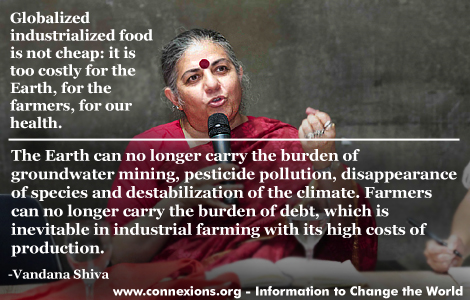
Your support is needed to keep Connexions going
All of the work of the Connexions project is done by volunteers, but our expenses include rent, phone and computer costs and technical support, as well as expenses related to our ongoing project of converting printed archival materials into digital formats. You can make a one time or regular monthly contribution through the donate page on the Connexions website.
Bequests
Many of us have made working for social justice a lifetime commitment. If you are thinking about leaving a legacy for social justice that will live on, you might want to consider leaving a bequest to Connexions in your will. If you'd like to discuss this option, please contact us or see the Bequest page.




